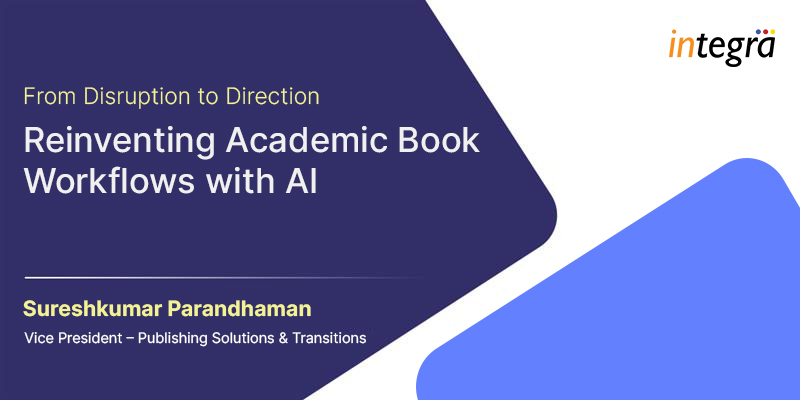Artificial Intelligence (AI) and Augmented Reality (AR) are Reinventing Learning Spaces

Introduction
Imagine a classroom where learning leaps off the pages and into the realm of real-life experiences. This is no longer a fantasy, thanks to the emergence of groundbreaking technologies the world has obtained in the recent decade. We are entering an era where radical transformation in educational paradigms is possible more than ever and is within reach on a global scale!
Of the many transformative technologies, we have today at our disposal, Artificial Intelligence (AI) is at the forefront of this revolution. We are already witnessing AI’s impact across many industries with its capability to offering unparalleled levels of creativity and innovation. One other technology that is significant in the education context is Augmented Reality (AR). AR is no longer just a buzzword limited to gaming and entertainment circles; it is emerging as a potent force in the educational sector as well.
Leveraging the capabilities of AI and AR opens a doorway to a new world where the digital and physical realms intertwine seamlessly. This powerful combination can help us transcend traditional boundaries, ushering in a transformative new future in how we educate, and students learn.
Understanding the catalysts
Artificial Intelligence (AI) in Education
Teachers have long been the cornerstone in the education value chain. But one major limitation the traditional education model was unable to solve until now was one-to-one instruction. In a typical classroom setting, personalizing education to cater to each student’s unique needs and pace of learning had remained largely unattainable, even when digital tools were used. This is where AI steps in as a game-changer.
AI’s capability to assimilate and analyse vast amounts of both qualitative and quantitative data, is the single-most important enabler that is needed for a domain like education. By seamlessly generating insights into individual learning styles, progress, and needs from the vast amounts of learners’ data, AI-powered tools allow educators to tailor their teaching strategies more effectively, ensuring that every student’s learning journey is as personalized and impactful as possible.
Augmented Reality (AR) in Education
The vast majority of students face difficulties in grasping and understanding abstract ideas. This challenge is more pronounced when students encounter Science, Technology, Engineering, and Mathematics (STEM) subjects, as they often find it hard to relate these complex ideas to real-world scenarios. This disconnect not only hinders comprehension but can also dampen the natural curiosity and enthusiasm that is vital for learning.
Augmented Reality (AR) comes about as that magic wand that gives us this remarkable capability of turning abstract concepts into tangible, interactive experiences. By bringing complex subjects to life through immersive, interactive experiences, AR helps demystify complex theories and principles, making them more accessible and relatable to students. The versatility of AR is another aspect that sets it apart, as it is not confined to a single subject or age group. From elementary classrooms exploring the basics of natural sciences to university students delving into intricate engineering principles, AR has a role to play across all age groups and disciplines.
Synergizing Artificial Intelligence (AI) and Augmented Reality (AR)
When AI and AR converge, the possibilities are truly limitless. AI can personalize AR experiences, tailoring them to individual learning styles and preferences. This creates a dynamic and adaptable learning environment that caters to the diverse needs of every student.
Imagine students exploring a virtual museum, guided by an AI-powered virtual voice assistant that answers their questions and adapts the experience to their interests. Or, picture medical students practicing surgery on a virtual patient, receiving instant feedback from their AI instructor.
The benefits of this technological synergy extend far beyond the classroom. Students with disabilities can access educational resources and participate in learning activities that were previously inaccessible. Learners in remote locations can collaborate with peers and experts from around the globe, eliminating geographical barriers to education.
Benefits of AI and AR in Education
- Engaging and Immersive Learning: Students can explore virtual worlds, interact with 3D objects, and participate in simulations, leading to deeper knowledge retention and improved problem-solving skills.
- Personalized Learning Experiences: AI algorithms tailor learning content and activities to the individual needs of each student, ensuring that everyone progresses at their own pace and reaches their full potential.
- Personalized and Instant Feedback: AI systems offers real-time, personalized feedback, accelerating and enhancing learning by tailoring responses to individual student needs and progress.
- Accessible Learning: AR and AI have the ability to break down geographical and physical barriers, making education accessible to students with disabilities and those in remote locations.
- Boosted Critical Thinking and Problem-solving Abilities: Adaptive learning solutions and simulations challenge students to think critically and apply knowledge to solve real-world problems.
The Future of Education: A Collaborative Landscape
As we forge ahead into the future, Artificial Intelligence (AI) and Augmented Reality (AR) are emerging not merely as tools but as powerful catalysts of transformative change in the educational landscape. AI and AR are not replacements for teachers, but rather powerful tools that can empower educators to create more effective and engaging learning experiences. These technologies are redefining what it means to learn, converting traditional lessons into immersive opportunities for exploration and growth. With AI and AR, education transcends the conventional boundaries, enabling us not just to learn about the world but to experience it in its full richness and diversity.
Embracing these groundbreaking innovations opens up a universe where learning is boundless, deeply immersive, and accessible to all. We are standing at the brink of an exhilarating educational revolution, driven by limitless possibilities and fueled by the power of our imagination.
Recent Blogs

Research Integrity vs. Publication Integrity: Clarifying Responsibility in Scholarly Publishing

From Disruption to Direction: Reinventing Academic Book Workflows with AI


